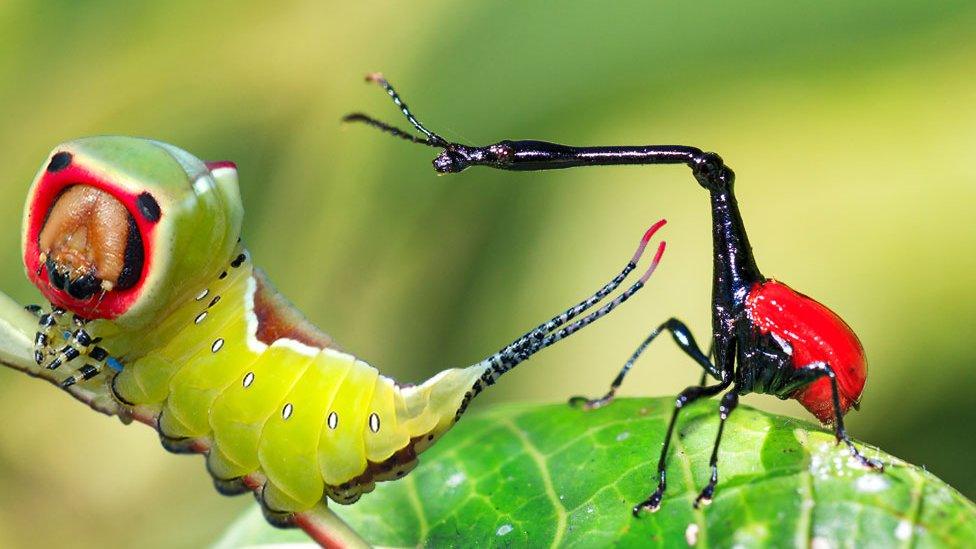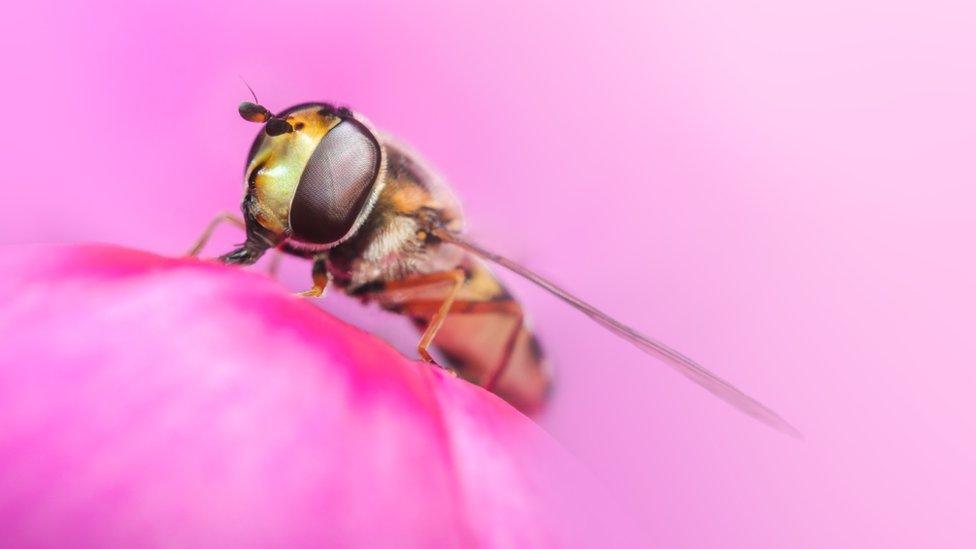Scientists use 'mini backpacks' to study rare beetle

36 of the insects were fitted with the tracking devices
- Published
Scientists have put "mini backpacks" on rare beetles, which are found in temperate rainforests, as part of a study.
These "backpacks" are quite different to the ones you might take to school, they are actually radio trackers which record where the insects go.
Researchers from the University of Exeter have been working with the Woodland Trust - a charity that helps protect trees and woods in the UK - to take a closer look at the blue ground beetle, that lives in south-west England.
The team said the study could help give an "essential" insight into how conservationists could protect and restore rare habitats like this from climate change.
More stories like this
Did you know the UK has rainforests?
- Published22 May 2024
Billions of bugs to burst from the ground in 221 year event
- Published8 January 2024
Are insects facing extinction?
- Published11 February 2019

Researchers often worked at night as part of the study
The researchers were led by Dr Nick Royle and PhD researcher Brogan Pett.
In total they put 36 of the devices onto the blue ground beetles to record their movement across woods in Dartmoor.
Some of the beetles were faster, while others were more adventurous and would travel for multiple days before returning back to their base.
Dr Royle said very little is known about the insects "particularly how it uses the habitat it is found in and what characteristics are essential for it to thrive".

The researchers were led by Dr Nick Royle and PhD researcher Brogan Pett
Sam Manning, who is the Woodland Trust site manager of where some of the study took place, said the findings will help with future decisions on how to protect these rainforests.
He said the beetles are an important sign of a healthy temperate rainforest in south-west England.
He believes the study will help find out what the insects need to thrive and repopulate.
The Woodland Trust is working with groups in the South West, Scotland and Wales to help protect the temperate rain forest environments.
- Published2 August 2019

- Published22 April 2024

- Published2 February 2021

